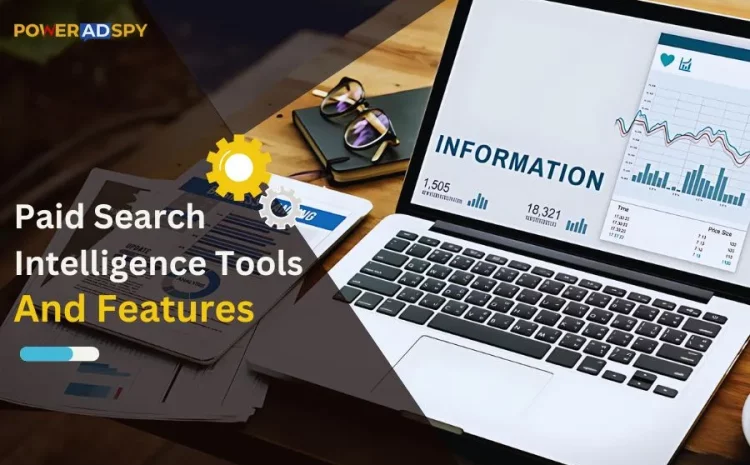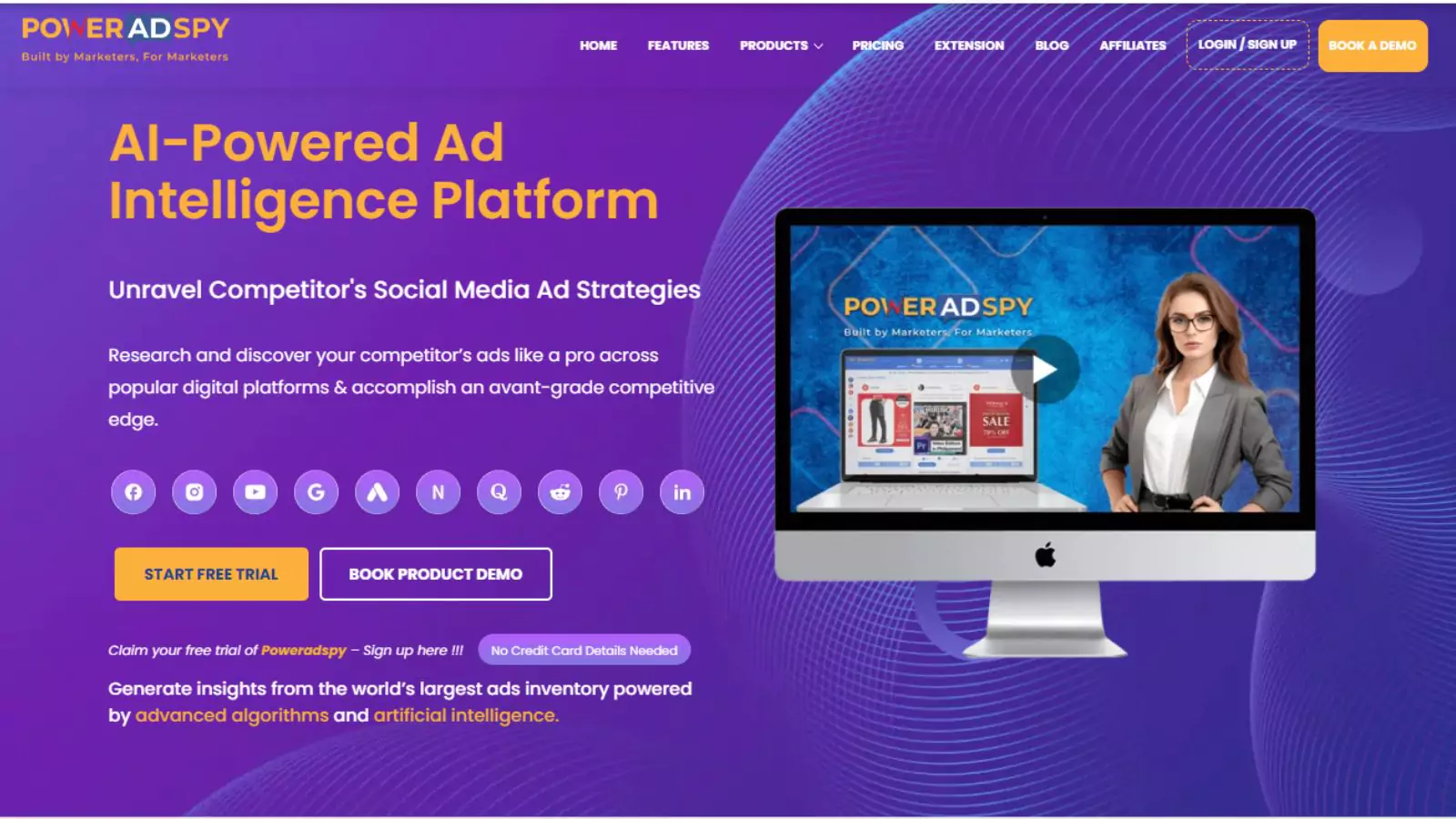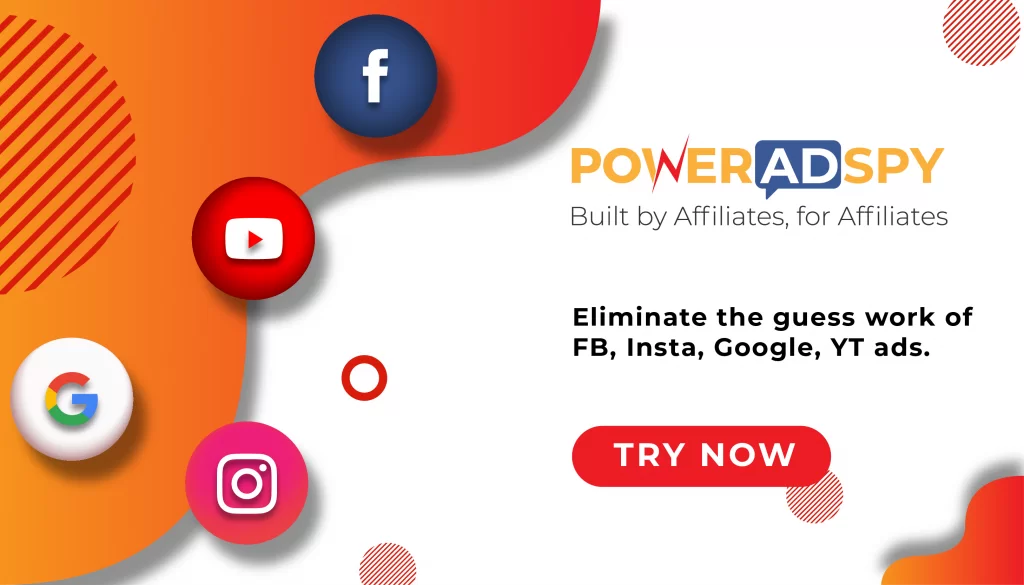Everything You Need To Know About Paid Search Intelligence
Did you know for every $1 spent on google ads, that businesses make an average of $2 in revenue? That’s the power of paid search intelligence. But what if you could take that effectiveness to the next level? Here comes the paid intelligence tool.
These tools don’t just help you find the right keywords; they provide deep insights into user behavior, competitor strategies, and ad performance. It is like a digital assistant that guides you through every step of your campaign, from keyword research to ad optimization. So get ready to dive into how paid search intelligence can boost your marketing and boost conversion.
Listen To The Podcast Now!
What Is Paid Search Intelligence Tool?
Paid search, also known as search engine marketing (SEM), is a digital marketing strategy where advertisers pay to display their ads on search engine results pages (SERPs). These ads typically appear at the top or bottom of the search results and are triggered by specific keywords related to the advertiser’s products or services. Advertisers bid on these keywords, and the ads are displayed based on factors like relevance and bid amount.
Paid search intelligence software is a specialized tool designed to provide insights within the paid search advertising realm. They essentially act as a digital assistant, enhancing your ability to gather intelligence and optimize your campaigns.
It has various advanced features: let us discuss some of their features and learn why they matter.
Features Of Paid Search Intelligence Tool And Why They Matter:
You aim to engage potential customers who are genuinely interested in your offerings. But how do you standout and grab their attention? Paid search intelligence equips you with the insights needed to precisely target and connect with your ideal audience. By understanding which keywords, ad placements, and strategies are most effective, you can optimize your campaigns to reach the right people at the right time, ultimately driving higher engagement and conversions.
Let us dive deeper into the details of how it equips you with insights:
1. Maintain Relevance
With paid search intelligence tools, you can uncover the exact keywords people use to search for products or services like yours. This enables you to target your ads with pinpoint accuracy, ensuring your message reaches the most relevant and interested audience. By leveraging these insights, you can craft campaigns that resonate deeply with potential customers, driving higher engagement and better conversion rates.
Keyword Research and Analysis:
- Identify High-Value Keywords: Paid search intelligence tools analyze vast amounts of search data to identify keywords with high search volume and relevance to your business.
- Understand User Intent: Beyond identifying keywords, such tools help you understand the intent behind searches. Are users looking for information, comparing options, or ready for a purchase? This insight allows you to tailor your ad copy and landing pages to meet their needs.
2. Ads Insights:
Suppose not only knowing what keywords people are searching for but also gaining a deep understanding of their demographics, interests, and online behavior. Paid search intelligence provides these valuable insights, enabling you to create highly targeted and effective advertising campaigns.
Here is an in-depth look at how these insights enhance your advertising strategy:
1. Demographic Insights
- Age and Gender: Paid search intelligence tools can provide data on the age and gender distribution of users searching for specific keywords. It allows you to tailor your ad content and design to appeal to the predominant demographic groups engaging with your ads.
- Location Data: You can access geographic data to understand your potential customer’s location. It is crucial for localizing your ad campaigns, offering region-specific promotions, and optimizing your delivery times based on local time zones.
2. Interest and Behavioral Insights
Interest Categories: Paid search intelligence tools like Google Ads and Facebook Ads provide insights into users’ interests based on their online behavior, such as the types of websites they visit and the content they engage with. It helps you craft ad messages that align with these interests, increasing the likelihood of engagement.
Behavioral Patterns: Understanding users’ online behavior, such as browsing habits, previous purchase history, and frequency of searches, allows you to segment your audience more effectively. For example, you can target frequent buyers with loyalty rewards or re-engage past visitors with remarketing ads.
3. Tailored Ad Copy and Creative
- Personalized Messaging: With detailed demographic and behavioral data, paid search intelligence helps you create personalized ad copy that speaks directly to your audience’s needs and preferences. For instance, if your data shows a significant portion of your audience is interested in sustainability, you can highlight eco-friendly aspects of your products.
- Visual Customization: Knowing your audience preferences allows you to choose visuals that resonate better. Younger audiences might respond well to vibrant, dynamic images, while older demographics prefer more straightforward, informative visuals.
4 . Enhanced Landing Page Relevance
- User-Centric Design: Insights into user behavior and preferences inform the design and content of your landing pages. For instance, if your audience values detailed product information, ensure your landing pages provide comprehensive descriptions and specifications.
- Optimized Call-to-Actions (CTAs): Tailor your CTAs based on user intent data. For transactional searches, use CTAs like “Buy Now” or “Get a Quote.” For informational searches, use “Learn More” or “Download Our Guide.”
5. Performance Optimization
- Real-Time Adjustments: Paid search intelligence tools offer real-time performance data, allowing you to adjust your campaigns immediately. If a particular demographic is not responding as expected, you can quickly modify your targeting or ad content.
- A/B Testing: Continuously test different versions of your ads and landing pages to see which ones perform best with various segments of your audience. This iterative testing process ensures to optimize your campaign for maximum effectiveness.
6. Strategic Budget Allocation
- Prioritized Spending: Allocate your ad budget more effectively by focusing on high-performing audience segments. If data shows that some demographics or interest groups convert at higher rates, you can increase your investment in these areas to maximize ROI.
- Reduced Wastage: Avoid spending on low-performing segments by using insights to refine your targeting. It ensures that every dollar of your ad spend is used efficiently, improving the overall cost-effectiveness of your campaigns.
7. Staying Ahead of the Curve
Paid search intelligence helps you stay ahead of the marketing competition by uncovering new trends and competitor strategies. It allows you to adapt your campaigns quickly and capitalize on emerging opportunities.
To thrive, advertisers must continuously adapt to new trends and strategies. Here is an in-depth explanation of how paid search intelligence helps achieve this:
Rapid Technological Advancements:
- Search Algorithms: Search engines like Google frequently update their algorithms, which affects how ads are ranked and displayed.
- Ad Formats: New ad formats and features (e.g., responsive search ads and video ads) are constantly introduced.
- Automation and AI: Increased AI and machine learning use for targeting and optimization.
Shifting Consumer Behavior:
- Search Trends: Consumers’ search behaviors evolve with changes in technology, culture, and global events.
- Device Preferences: The growing use of mobile devices impacts how and when consumers interact with ads.
- Privacy Concerns: Increased focus on data privacy influences targeting and personalization strategies.
Now that you understand the power of paid search intelligence. Let us delve into the best tools.
Also Read
Ad Intelligence Tool : The Secret Weapon for Successful Ads
Get Ahead of Your Marketing Competition Using Ad Intelligence Tools
Best Paid Search Intelligence Software
Keyword research is very crucial for a successful paid search campaign. These paid search intelligence tools assist you in finding high-volume, low-competition keywords to attract targeted traffic to your website.
Here are some keyword analysis tools :
SEMrush
SEMrush is a versatile digital marketing toolkit well known for its powerfull features in keyword research, competitive analysis, and comprehensive SEO and PPC optimization.
Its Keyword Magic Tool generates extensive keyword ideas from a seed keyword, providing essential metrics such as search volume, keyword difficulty, and cost-per-click (CPC). The keyword difficulty score helps prioritize efforts on more achievable terms.
SEMrush’s domain overview provides a snapshot of a competitor’s domain performance, highlighting organic and paid search metrics, top-performing keywords, and traffic sources for competitive analysis. The Keyword Gap feature allows users to compare their keyword profiles with competitors, identifying opportunities where competitors rank but they do not.
SEMrush also excels in position tracking, monitoring keyword rankings in search engine results pages (SERPs) over time, and identifying SERP features where their keywords appear, thus providing valuable insights into SEO and PPC efforts.
Ahrefs
Ahrefs is another powerful paid search intelligence tool for keyword research, offering detailed metrics such as search volume, keyword difficulty, click-through rates (CTR), and competitive analysis.
It enables users to uncover the search volume for specific keywords and evaluate their competitiveness with difficulty scores. Ahrefs also provides insights into organic search results, showing which sites rank for some keywords and analyzing their backlink profiles.
This competitive analysis helps advertisers understand why certain pages rank well and how to improve their content and backlink strategies to achieve better rankings.
Here are some free tools as well:
Google Keyword Planner
Google Keyword Planner is a free fundamental tool provided by Google Ads that assists advertisers in discovering keyword ideas and estimating search volumes. It allows users to generate a list of related keyword ideas by entering a seed keyword or website URL, helping expand their keyword lists with relevant terms.
Additionally, it groups similar keywords for organization and management. The tool offers historical search volume data, enabling users to track changes in keyword interest over time, and provides performance forecasts based on budget and bid settings.
Key metrics include average monthly searches, competition levels, and bid estimates, which guide advertisers in assessing the competitiveness and potential costs for specific keywords.
As a free resource integrated with Google Ads, Keyword Planner is accessible to all advertisers, facilitating the seamless implementation of keyword strategies and adjustments based on trends and seasonal variations.
Google Analytics
Google Analytics is a powerful web analytics service provided by Google that delivers comprehensive insights into website traffic and user behavior. It tracks key metrics such as user visits, page views, session duration, and bounce rates, offering a detailed understanding of how visitors interact with a site.
The platform also identifies acquisition channels, showing how users arrive at the website, whether through organic search, direct visits, social media, referrals, or paid ads. Conversion tracking capabilities allow businesses to set and monitor specific goals, such as form submissions or purchases, and analyze e-commerce performance in detail.
Google Analytics supports audience segmentation, enabling the creation of custom user groups for targeted analysis, and provides real-time reporting to monitor live user activity. By integrating seamlessly with Google Ads, it offers a unified view of campaign performance, helping businesses make data-driven decisions to optimize their marketing strategies and improve overall site engagement and conversion rates.
The comprehensive data tool and user-friendly interface make it a valuable resource for in-depth keyword research and competitive analysis, ultimately enhancing paid search campaigns and SEO strategies.
We’ve covered various free and paid ad intelligence tools, but we have a bonus tool just for you. Excited? Let’s dive in and explore further!
PowerAdSpy – Advanced Ad Intelligence Tool
PowerAdSpy is an ad intelligence software designed to help marketers and businesses uncover successful ad strategies used by competitors across various platforms, including Facebook, Instagram, Google, YouTube, and more.
It provides comprehensive insights into the performance and creative elements of ads, enabling users to optimize their advertising campaigns effectively.
Let us explore some advanced features :
Extensive Ad Database: PowerAdSpy boasts a large database of ads from multiple platforms, allowing users to search and analyze a wide range of advertisements.
Advanced Search Filters: Users can filter ads based on various criteria, such as ad platform, niche, keywords, engagement metrics, and target audience demographics. It helps in pinpointing the most relevant and successful ads.
Ad Copy and Design: PowerAdSpy provides detailed information on ad copy, headlines, and creative designs, enabling users to gain inspiration and adapt successful elements to their campaigns. It includes visuals, text, call-to-actions, and overall layout.
Combination of Videos and Image Ads – While image ads are effective, video ads have proven to be even more impactful, particularly in the current social media landscape. PowerAdSpy recognizes this trend and offers an extensive and rapidly growing collection of social video ads. This feature helps users understand which types of video content resonate most with their audience.
Bookmark the Best Ads – When you find ad concepts you want to use for your upcoming campaigns, you can easily bookmark them with a single click. These ads will then be saved to your personalized Ads inventory, eliminating the need to search for them repeatedly.
Conclusion
Paid search intelligence is an invaluable tool for advertisers seeking to maximize the effectiveness of their digital marketing campaigns. Businesses can craft highly targeted and impactful advertising strategies by harnessing the power of data and insights. These strategies resonate with their audience and drive results.
From keyword research and competitor analysis to ad performance tracking and optimization, paid search intelligence software empowers advertisers to stay ahead of the curve and capitalize on emerging opportunities in the ever-evolving digital landscape. With right tools advertisers navigate paid search confidently, achieving marketing goals and driving business growth.
FAQs
What does a paid search analyst do?
A paid search analyst is responsible for managing and optimizing pay-per-click (PPC) advertising campaigns on platforms like Google Ads and Bing Ads. They analyze data, conduct keyword research, create ad copy, and monitor performance to maximize ROI and achieve marketing goals. Their work involves continuous testing and adjusting strategies to improve campaign effectiveness.
What is a keyword in paid search?
A keyword in paid search is a specific word or phrase. Advertisers bid on these keywords to display their ads in search engine results. When users search for these keywords, relevant ads are shown, helping to attract targeted traffic to the advertiser’s website.











